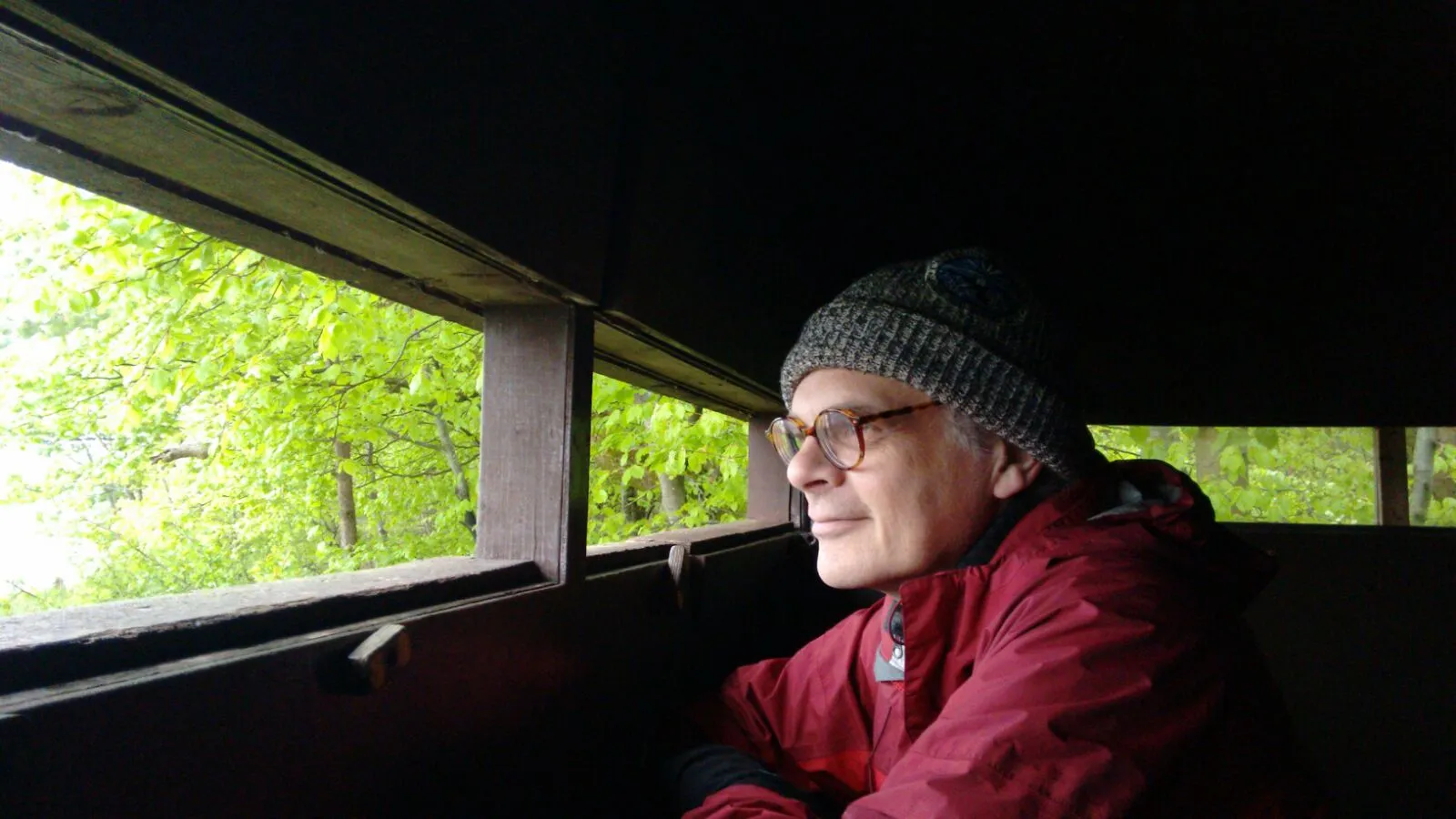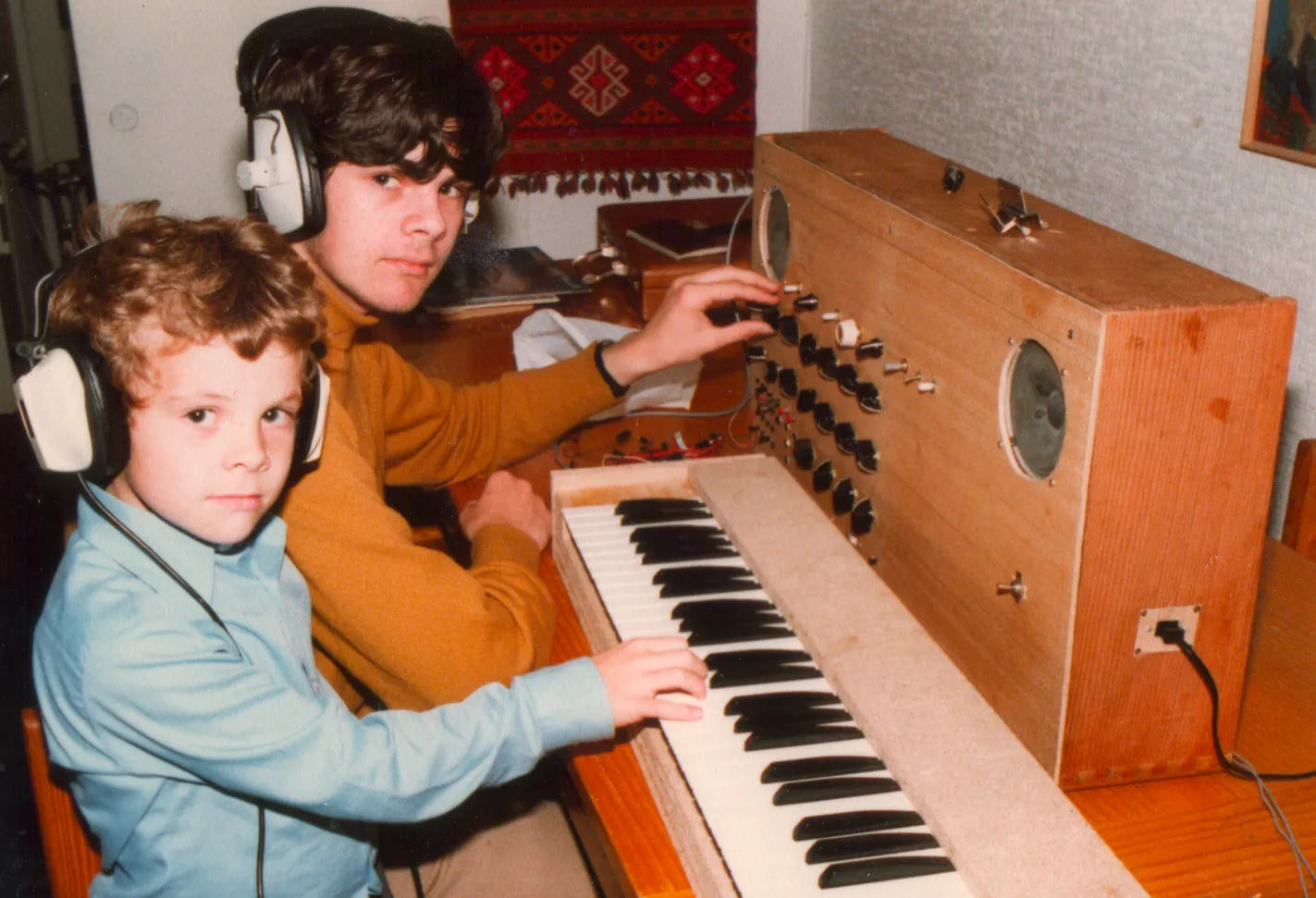Profile: tedthetrumpet
| Tidal Cyclist | J Simon van der Walt |
|---|---|
| aka | tedthetrumpet |
| Time with Tidal | 3 yrs |
| Other LiveCoding env | SuperCollider, Hydra, Strudel, Punctual |
| Music available online | Bandcamp, SoundCloud, YouTube |
| Other music/audio sw | Audacity, MuseScore, Logic |

Livecoding
What do you like about livecoding in Tidal?
- I have no background in computer science, but I find the syntax suprisingly intuitive. Also, by comparison with SuperCollider, you can get a lot of music going with very little typing.
How do you approach your livecoding sessions?
- Two main approaches, I guess. Usually it’s just quick improvisations on the spur of the moment, often ending up with nothing more than a one minute long sketch. I’m not particularly trying to create anything specific, and I just stop when I have something that sounds interesting.
- The other approach is when I have an idea for a particular sound or gesture or structure that I want to create. This is usually less succesful: I’ve got a lot of abandoned projects where I tried and failed over a period of days or weeks to achieve some aim or other.
What functions and coding approaches do you like to use?
- My favourite technique is one that some people frown on: making random but fixed patterns that repeat themselves. So, for instance, rather than explicitly creating a pattern in the mini notation, I usually start with something like
d1 $ n (loopFirst $ shuffle 8 $ run 8) # s "peri". (Which is actually one place where SuperCollider wins in conciseness, it’s basically Pshuf).
Music
Tell us about your livecoding music. What musical genre(s) or style(s) describe it best?
- Three main approaches: er… gamelan, algorave, and abstract? I should say ‘gamelan’: in other words music that may use gamelan samples and ideas from Javanese or Balinese music without really being gamelan music. I have no proper skills, knowledge or understanding when it comes to dance music, but it’s always fun to try to improvise an algorave banger live. ‘Abstract’ might be when I use something like
slowstripeto defeat any sense of pulse and start pitching samples down a couple of octaves.
How has your music evolved since you have been livecoding?
- I could say that livecoding saved my musical creativity after I finished my PhD! I got kind of burned out after spending seven years creating a conventional portfolio of ‘compositions’. With code I was able to just make stuff for myself without having to score it or get other people to play it or justify it to anyone.
What samples or instruments do you like to work with?
- My own samples. For me, creating and using my own sets of sounds is kind of fundamental to the creative process. For the purposes of a quick rave-up I’ll happily turn to the standard Tidal set, but for me to really feel ownership of a piece I need to use samples and synths that I have a personal stake in.
What projects are you currently working on / planning? What’s next?
- I need to find a way to release my actual first album. I finished it several years ago, but the label who were going to release it stopped functioning, so… I don’t feel like I want to release it myself but I haven’t found anyone else who is interested. Yet.
Tidal Contributions
How do you contribute to TidalCycles? What have you worked on?
- I’m a musician not a developer, so I’m not really able to ‘contribute’ in the sense of code! However, I have made some gamelan sample banks available, asked (hopefully useful) questions on forums, taught Tidal at my institution, and initiated the Floating Gold project that used MiniTidal in Estuary.
Links to your music / recorded livecoding sessions:
- Most of the things I’ve put out are actually in SuperCollider, but these are Tidal/MiniTidal –
- Improvising ‘gamelan’ music in Estuary https://diode.zone/w/ppenMJ4p9W2b41pDe7ZNiA
- Short Estuary piece ‘brarnarnarnarnard’ https://www.youtube.com/watch?v=tV4G1z55ePA
- Solstice Night Stream Dec 2022 - Livecoding with Audacity https://www.youtube.com/watch?v=0YpgHdJY-Kw&list=PLMBIpibV-wQIdS6D1vdijRZPfLBrRP9A_&index=6
- Part of a longer jam I’d forgotten about, starts abstract and gets a bit more rave later https://youtu.be/jDl_ALEq4Zs?t=575
Other

- With my brother, late 1970s, homebrew analog synth.
- jsimonvanderwalt.com
- tedthetrumpet.hotglue.me